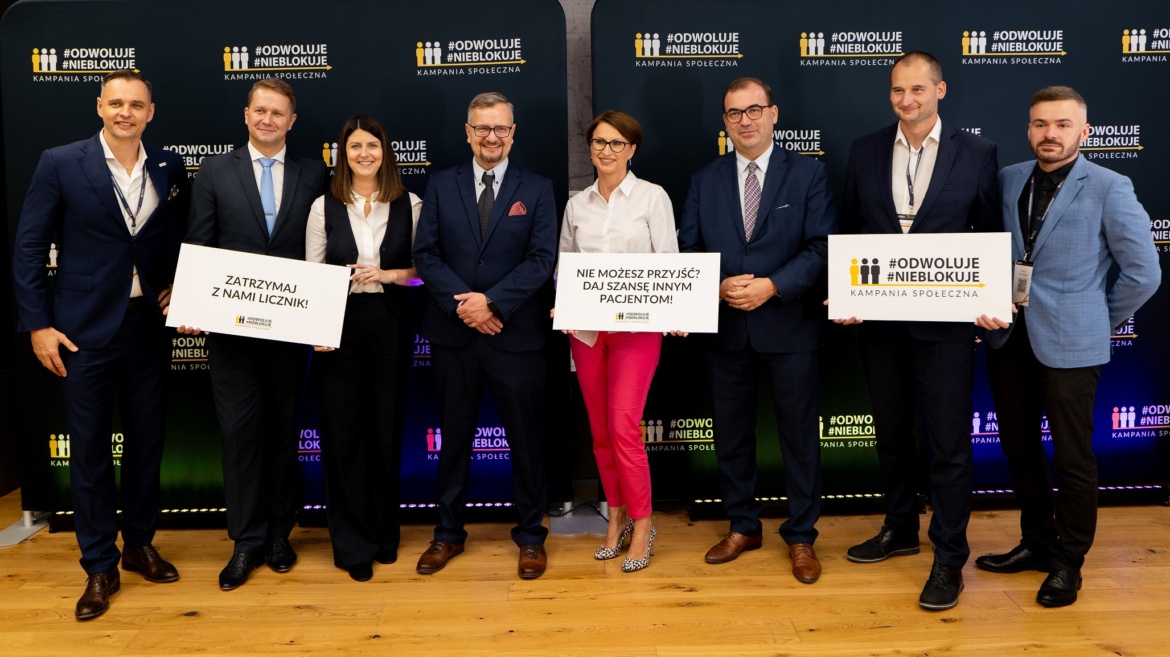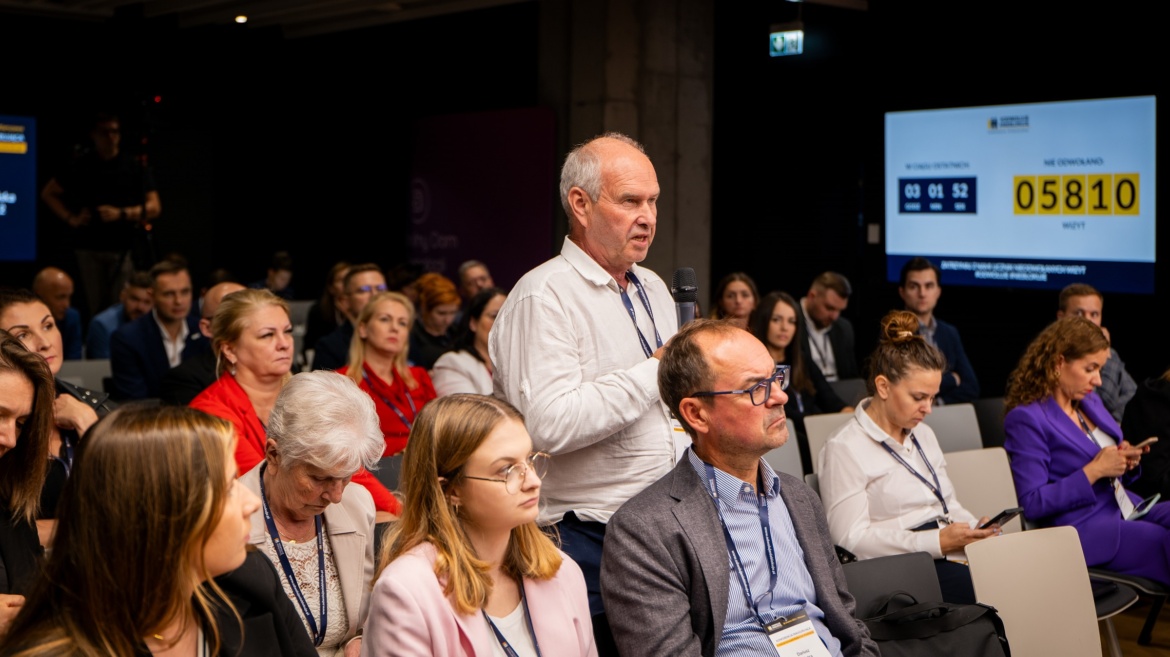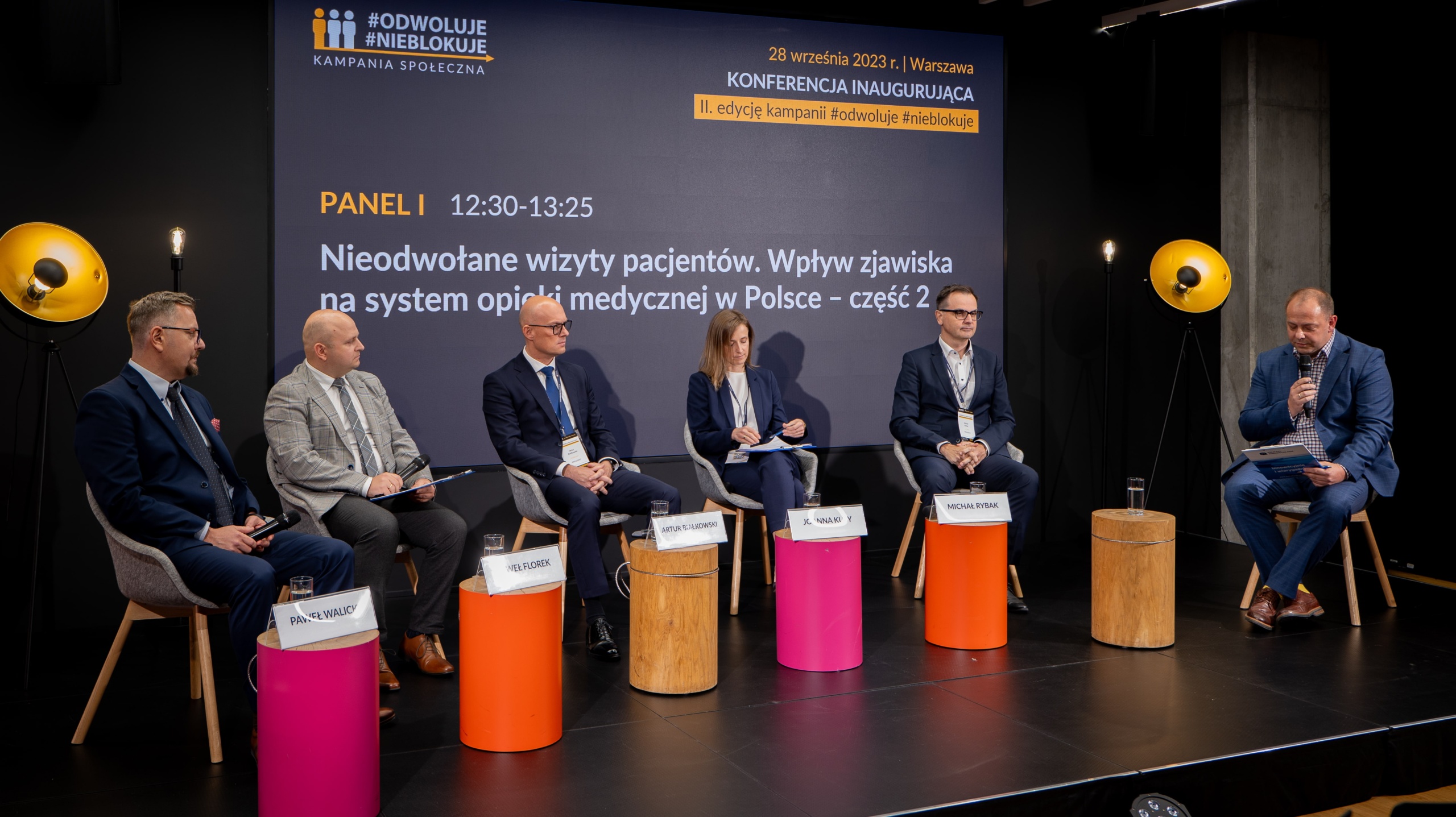- On Thursday, 28 September, a conference was held to launch the second edition of the #ODCALLS #NIEBLOKUJE campaign, during which the entire wider medical community, key decision-makers and patient representatives met to discuss the problem of missed medical appointments and attempt to develop joint recommendations for the most effective solutions.
- The first edition of the campaign has already resulted in a drop of at least a dozen per cent in the number of missed appointments at participating facilities. In the second edition, which is now being launched, the emphasis is primarily on educating patients about the scale of the problem - of up to several million visits per year - and looking for systemic and technological solutions to facilitate the cancellation of appointments. One of the cornerstones of these measures is, among others, the Charter of Good Practice for the Patient, just adopted by the Council of Patient Organisations under the Minister of Health.
- According to a survey conducted for the campaign by the MY PACJENS Foundation, awareness of the scale of the problem of missed appointments is still too low - 53 per cent of respondents estimate it at a maximum of 100,000 visits per year, with only just over 4 per cent indicating a figure above 10 million. However, as many as 78 per cent of respondents believe that patients' failure to cancel medical appointments is an important issue for the smooth functioning of health care. Among the preferred solutions to make it easier to cancel appointments, patients most often indicate text messages from the clinic asking them to confirm their attendance.
The conference launching the second edition of the #ODOCALLY #NIEBLOCK campaign brought together a wide range of experts and practitioners representing key medical organisations and stakeholders, as well as policy makers and pro-patient organisations, to discuss the problem of missed medical appointments and seek solutions, including systemic and technological ones. This is because early cancellation of a consultation or planned procedure gives a resource to be used by other patients in need.


- We can see that the reach and effectiveness of the #ODOVE #NIEBLOCK campaign are increasing. Ten partners initially joined the campaign initiated by the CMP Medical Centre, and today their number has exceeded 300 entities. Naturally, we want the second edition of the campaign to have an even greater social resonance. It has an open nature - there is no cost to join, therefore encourage every medical facility in Poland to register on the campaign website www.odwolujenieblokuje.pl. There you can also find all the necessary information and gain access to information material to use - says Paweł Walicki, CEO of CMP Medical Centre. - The activities implemented as part of the campaign are already having a real impact. A clear positive change is visible in all partners. The rate of missed appointments has fallen by at least a dozen per cent each, which translates into improved accessibility to doctors and increased safetyand health of patients.
The first edition of the campaign focused primarily on integrating the entire medical community and initiating a broad public discourse involving all sides of the healthcare system in Poland, as well as proposing changes, including legislative ones, to minimise the phenomenon. The practical consequence was the development and adoption by the campaign partners of a Charter of Good Practice for Medical Facilities with recommendations for the education of patients and staff. The second edition, which is now starting, focuses more on the patients themselves - educatedu them both on the phenomenon itself and on tools to facilitate the cancellation of appointments. Just adopted by the Council of Patient Organisations under the Minister of Health, this is another milestone of the campaign.
- Almost half a million missed appointments in the first six months of this year in oncology and cardiology, among others. This is quite a scale, especially as we are talking about public health care. That is why we have once again joined the activities of the social campaign #ODWOLUJE #NIEBLOKUJE, because we are jointly committed to stopping the counter of missed appointments. I believe that, among other things, through consistent education and a constant increase in patient awareness that a missed appointment could have been used by someone else, we will be able to effectively reduce the number of missed appointments. - says Filip Nowak, President of the National Health Fund.
Problem still underestimated
The concerted efforts of healthcare actors have an additional objective: to try to estimate the real scale of the problem. Estimates from the Ministry of Health in 2019 put the number of such visits at 17 million per year, but representatives of the most important facilities and medical entities agree that this is an underestimate. The problem is even more underestimated among patients themselves. In a survey conducted by the WE PATIENTS Foundation for the campaign, more than 53 per cent of respondents estimate that the number of missed appointments does not exceed 100,000 per year. Only just over 4 per cent believe that there are more than 10 million such blocked visits each year. At the same time, respondents mostly understand the seriousness of the problem - as many as 78% believe that the lack of cancellation of medical appointments by patients is an important issue for the smooth functioning of health care. Among the preferred solutions to facilitate the cancellation of appointments, patients most often indicate the following SMS messages reminding of an appointment with a request to confirm it with the option to give "YES" or "NO" feedback. This contact option was chosen by as many as 92 per cent of respondents. The second most popular option was a text message with a phone number where the appointment can be cancelled (almost 79 per cent of indications). The third most popular option was a phone call from the clinic to confirm the appointment (including one made via chatbot). This option was indicated by 65 per cent of respondents.
In addition to the organiser, CMP Medical Centre, the conference was attended by representatives of co-organisers and campaign partners: Office of the Patient Ombudsman, National Health Fund, District Medical Chamber in Warsaw, Polish Federation of Hospitals, Medicover, LUX MED Group, PZU Health, WUM Medical Centre, "Żelazna" Medical Centre, kliniki.pl., Known Doctor, Adam Smith Centre, MY PACJENCI Foundation, Institute for Patient Rights and Health Education, Nie Widać Po Mnie Foundation, Talkie.ai, Medidesk, Sagenso.

